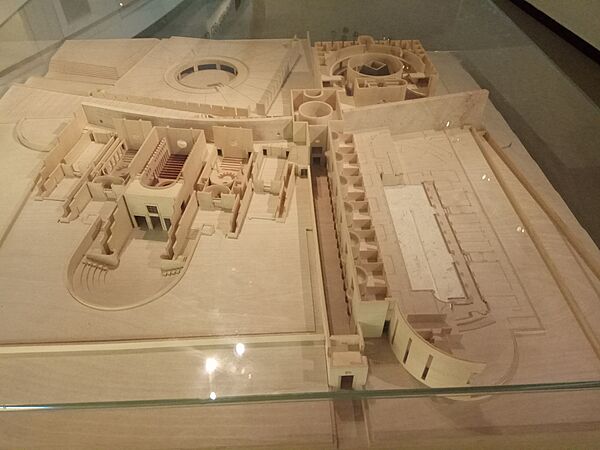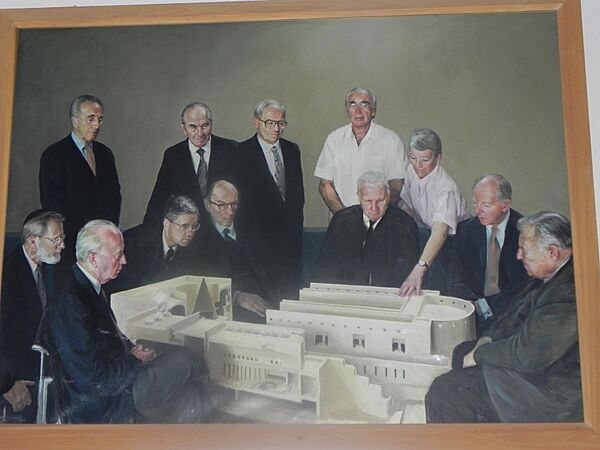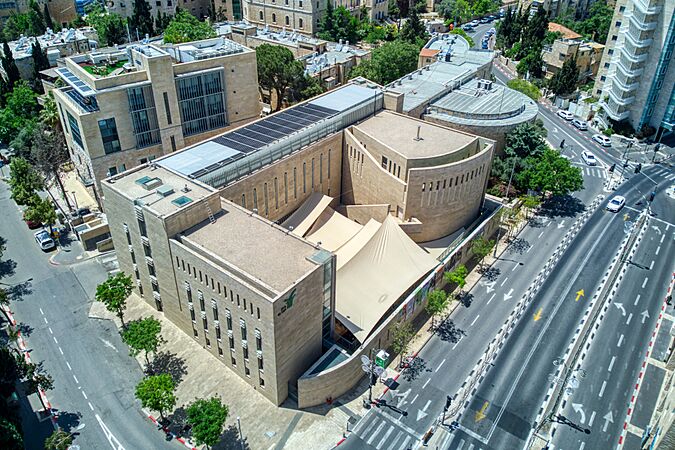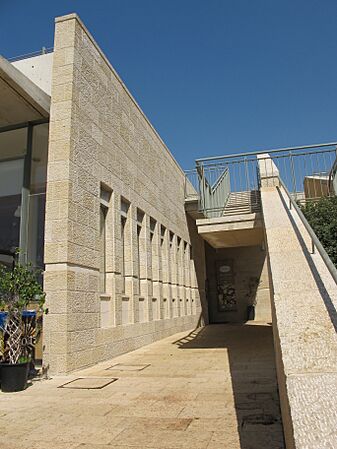Ada Karmi-Melamede facts for kids
Quick facts for kids
Ada Karmi-Melamede
|
|
|---|---|
| עדה כרמי-מלמד | |
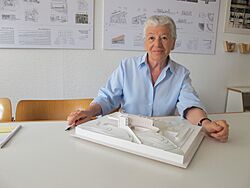
Ada Karmi-Melamede
|
|
| Born | December 24, 1936 |
| Nationality | Israeli |
| Occupation | Architect |
| Known for | Co-designing the Supreme Court of Israel building |
| Awards |
|
Ada Karmi-Melamede (Hebrew: עדה כרמי-מלמד; born 1936) is a famous Israeli architect. An architect is someone who designs buildings. Ada is well-known for helping to design the important Supreme Court building in Israel.
Contents
Ada Karmi-Melamede's Life and Work
Early Life and Education
Ada Karmi-Melamede was born on December 24, 1936. This was in Tel Aviv, a city in what was then called Mandate Palestine. Today, this area is known as Israel.
She studied architecture in London, England, from 1956 to 1959. She also studied at the Technion – Israel Institute of Technology. She earned her degree in 1963.
Ada later taught architecture at several famous universities. These included Columbia University and Yale University in the United States.
Designing Important Buildings
In 1985, Ada started her own architecture company in Tel Aviv. It was called Ada Karmi-Melamede Architects.
A big moment in her career happened in 1986. Ada and her brother, Ram Karmi, won a worldwide competition. They were chosen to design the Supreme Court of Israel building. This building is where important legal decisions are made.
The Supreme Court building opened in 1992. A famous architecture critic, Paul Goldberger, said the building showed "remarkable grace." He felt it blended the style of Mediterranean buildings with the serious nature of law.
Ada Karmi-Melamede is also the subject of a documentary film. It is called Ada: My Mother the Architect and came out in 2024.
Key Architectural Projects
Ada Karmi-Melamede has designed many important buildings. Here are some of her notable projects:
- Ramat Hanadiv Visiting Center, Ramat Hanadiv Memorial Gardens, Zikhron Ya'akov, Israel (2008)
- Life Sciences Building, Ben-Gurion University of the Negev, Beer-Sheva, Israel
- Supreme Court Building, Jerusalem, Israel (1992)
Awards and Recognition
Ada Karmi-Melamede has received several important awards for her work.
Israel Prize
In 2007, Ada Karmi-Melamede received the Israel Prize for architecture. This is one of the highest honors in Israel. She was only the second woman to ever win this award for architecture.
Her father, Dov Karmi, also won the Israel Prize in 1957. Her brother, Ram Karmi, received it in 2002. This shows that architectural talent runs in her family!
Other Awards
- She was given the Sandberg Prize for Research in Art and Architecture in 1985.
- She also received grants from the United States National Endowment for the Arts. These grants help support artists and designers.
See also
 In Spanish: Ada Karmi-Melamede para niños
In Spanish: Ada Karmi-Melamede para niños
- List of Israel Prize recipients


